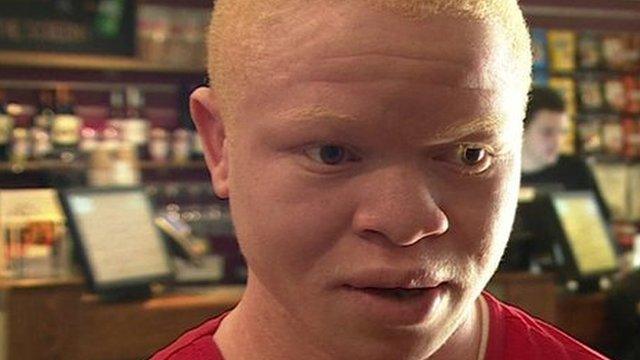Living with albinism: 'I'm the one-in-18,000 in the UK'
- Published
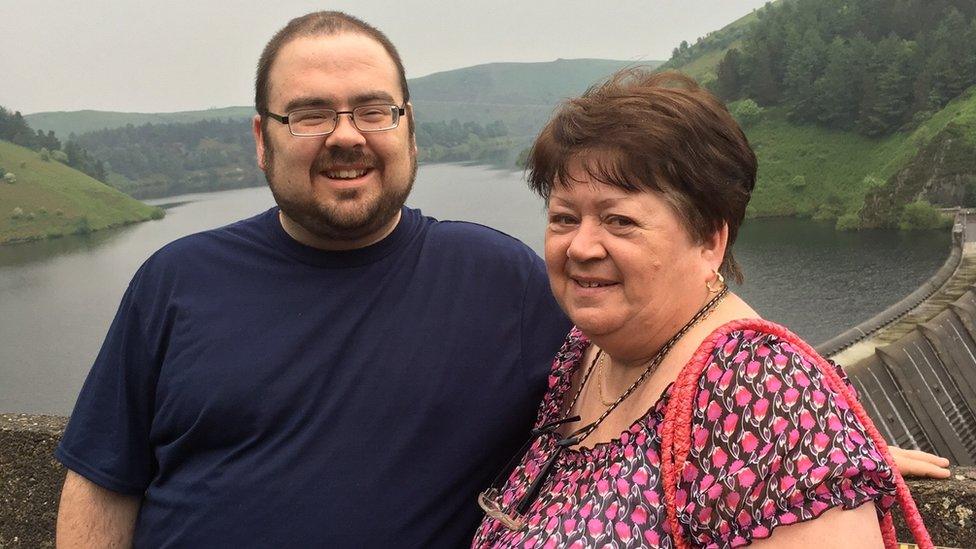
Mr Jones said his mum (pictured) and dad were "alone in the dark" in raising a child with albinism in mid Wales
When Neil Jones was born in mid Wales 40 years ago, it was clear something was wrong. Doctors were baffled by problems with his eyes and it took them two years to come up with the final diagnosis of albinism. But what is albinism? And what did it mean for a young boy growing up in a small Powys town?
"When I was born no-one else in my family had the condition," he said. "The doctors didn't really have a clue what it was they were looking at."
Albinism is a lifelong condition which limits the body's ability to produce melanin - the pigment which gives hair, skin and eyes their colour.
About one in 18,000 people are affected in Wales, the equivalent of 175 people.
People with albinism can have pale skin which burns easily in the sun, white hair, short sight, a sensitivity to light and involuntary eye movements.
There are two types of albinism - that which affects the skin, hair and eyes (oculo-cutaneous albinism) and that which affects just the eyes (ocular-albinism).
Mr Jones, who lives with his partner in Llanidloes, has the latter.
Tasmin Cressoti: 'I didn't feel human'
He said there was a lack of support for his parents who "were alone in the dark" in raising a child with albinism.
But he said he was "very fortunate growing up" that he went to a local primary school, before spending his secondary school years at a Royal National Institute for the Blind (RNIB) boarding school for the blind and visually-impaired in Worcester.
"My parents have never been overprotective. I was always encouraged to go out and make friends from an early age, and basically do everything a fully-sighted child would do," he said.
"But for people that weren't as fortunate as me, I do think they are very isolated. If there is support for people with albinism in Wales, it is not widely advertised."
Mr Jones, who works in a special educational needs school, said he felt frustrated about attitudes and the lack of knowledge about albinism.
"Information on any subject is at your fingertips via the internet," he said, "so there really is no excuse for ignorance in today's modern world".
"I recently googled albinism and was surprised how much information is out there."
He said if everyone read just one website, albinism "would be so much better understood".
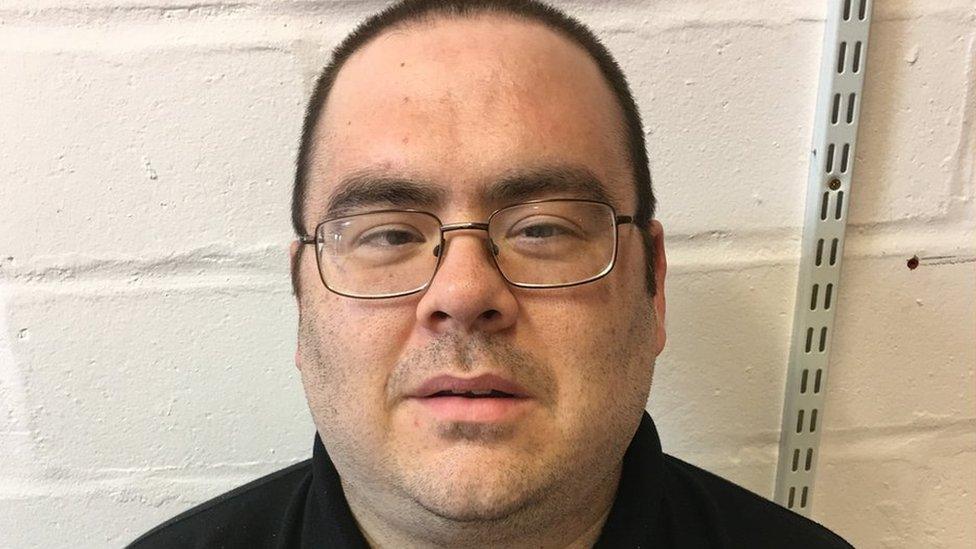
Mr Jones has ocular-albinism and is registered as partially-sighted
Mr Jones said people who have the visual characteristics of albinism often find they are stereotyped, thanks in part to what he described as "negative portrayals in society".
He said Hollywood films were a good example.
The Firm, Vamp, Foul Play and The Da Vinci Code all have "bad guy" characters with albinism.
"It's quite interesting that people who suffer from albinism have been stereotyped into that role, unfortunately," said Mr Jones.
"This does not help enlighten people's perception."
The stigma is extreme in parts of east Africa, where people with albinism have been murdered because of the belief that their body parts can bring wealth and cure illnesses.
"We're being killed like animals" - An albino woman in Tanzania where over 70 albino people have been murdered in the last 3 years
Mr Jones praised the work of the international organisation, Standing Voice,, external which is based in Tanzania and has its headquarters in London.
It exists to tackle the social exclusion of marginalised groups, such as people with albinism, in east Africa through a range of health and education programmes.
The Albinism Fellowship, external is the official charity for people with albinism in the UK. It is run by volunteers and its "key aim is to provide advice and support".
Roselle Potts, chairwoman of the trustees, explained they achieve this through a host of social events, where people can meet other people affected by albinism and share experiences.
Her daughter has albinism and she said she found it useful meeting other families and "tapping into their knowledge".
'Isolating'
Events include family conferences where guest speakers include experts who can explain the science behind albinism and technological advances.
Ms Potts said an event was recently held for the first time in Cardiff, where there were "several kids who met other kids with albinism for the first time".
"It was a magnificent moment," she said.
"With just 175 people having albinism in Wales you can understand why it might feel quite isolating."
- Published2 July 2017
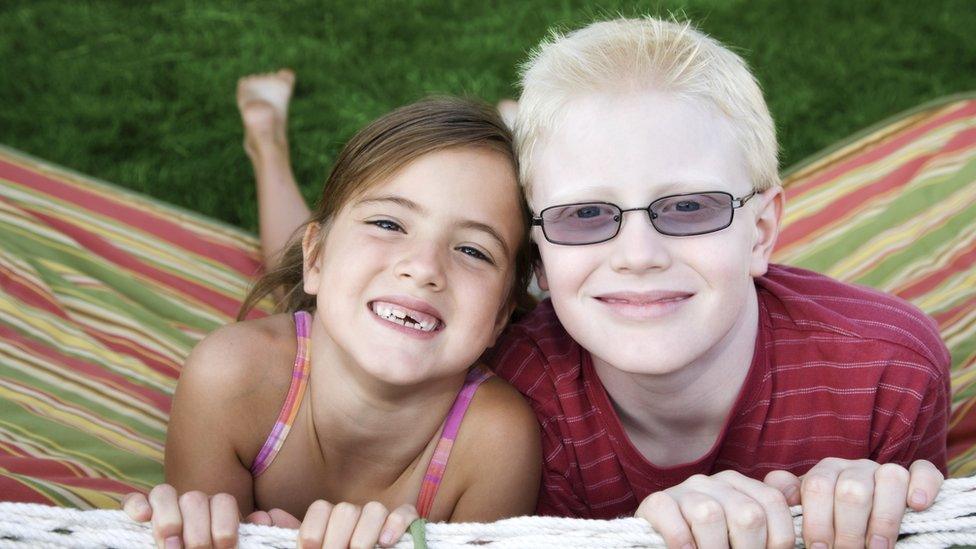
- Published14 June 2016
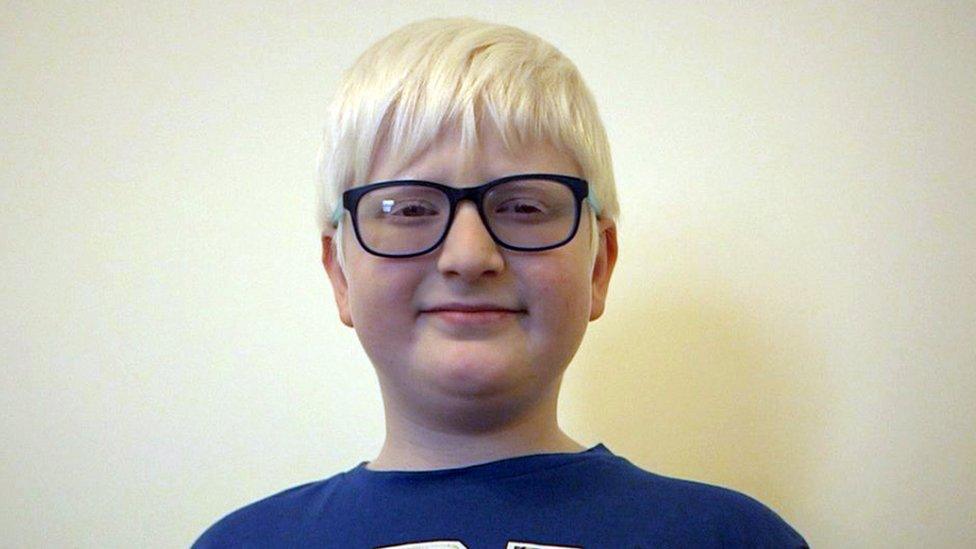
- Published14 June 2016
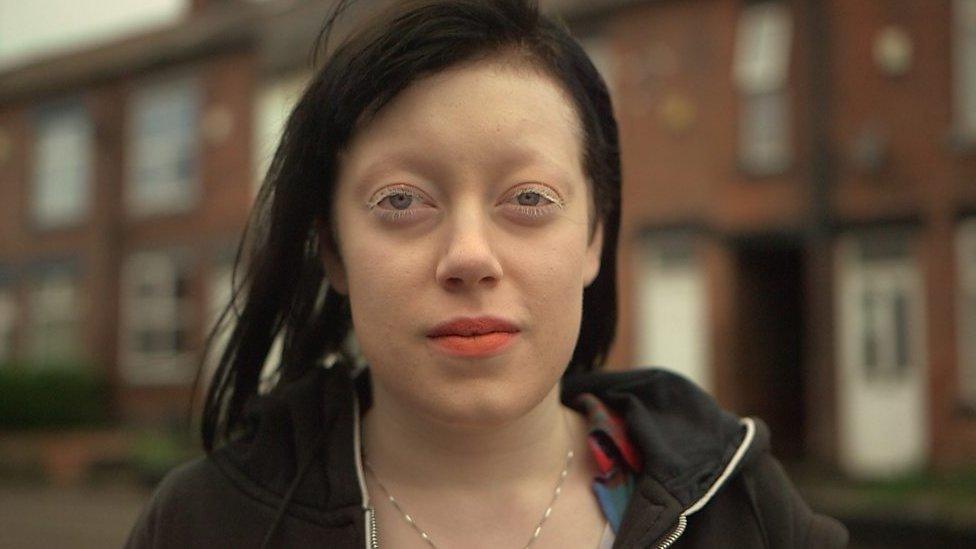
- Published31 March 2015
